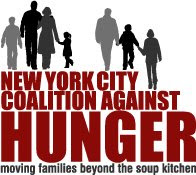 While many retailers are feeling the strain of a tumbling economy, more customers are turning to discount and dollar stores for an affordable way to feed their families, often relying on heavily-processed food. Even before the economic crisis, dollar and discount stores have functioned as grocery stores for low-income populations, but as food prices climb, discount retails like Family Dollar have dedicated more floor space to food items in an effort to attract middle-income bargain-conscious customers.
While many retailers are feeling the strain of a tumbling economy, more customers are turning to discount and dollar stores for an affordable way to feed their families, often relying on heavily-processed food. Even before the economic crisis, dollar and discount stores have functioned as grocery stores for low-income populations, but as food prices climb, discount retails like Family Dollar have dedicated more floor space to food items in an effort to attract middle-income bargain-conscious customers.Though the food is affordable, discount store food offerings pose potential health risks, as many items are high in sodium, sugar and preservatives.
The rise in dollar store sales represents a current trend in food shopping that has turned many city shoppers away from the bodegas that have traditionally served low-income neighborhoods. Bodegas have recently been the target of city agencies who have recently offered incentives to bodegas who supply fresh produce and low-fat milk as healthier options to neighborhood residents. As independent, often family-run businesses, bodegas have suffered from rising rent and product costs, which have contributed to falling sales in the past nine months, according to the Bodega Association of the

1 comment:
It's an alarming state when one of my favorite lines from the Simpsons comes to pass as a common social phenomenon:
Homer (reading grocery list): "Olive oil? Asparagus? If your mother wasn't so fancy, we could shop at the gas station like normal people."
Post a Comment